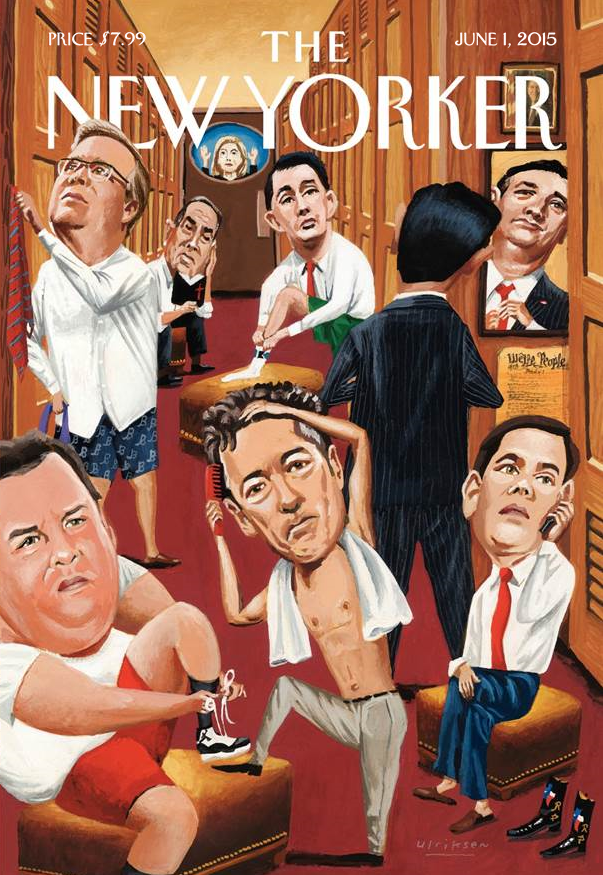When it comes to its field of contenders for 2016, the GOP has a bit of a dilemma on its hands. The pack of possible candidates is crowded, to say the least, which has an upside and a downside. The upside is that it advertises the depth of the Republican Party in an election where the Democratic offerings are pretty much Hillary Clinton and those two other guys. The downside is that a race that looks likely to grow to as many as 16 candidates is beyond unwieldy.
Fox News, with the tacit assent of the Republican National Committee, has taken the first steps to limit the field, by announcing that only the top 10 candidates, by poll numbers, will get a spot in the first sanctioned debate this August in Cleveland.
Related: The Backlash Against Billionaires Trying to Buy Elections
However, that’s not really making anybody happy.
“I’m very annoyed with the RNC and [RNC Chairman] Reince Priebus,” said Weekly Standard columnist Bill Kristol on MSNBC last week. “And now I think Fox is kind of colluding with them for that first debate in August [by] limiting the field. Which ones are they going to say doesn’t deserve to be there? Rick Santorum, who won Iowa and was the runner-up to Mitt Romney? Mike Huckabee, who was the runner-up in 2008? Carly Fiorina who…is impressive?”
At the same time, though, Republican political consultants look at the decision to limit the debate to 10 candidates as the worst of all worlds. The party can be slammed for restricting debate while still being stuck with a cumbersome corps of participants.
“You don’t want to kick anyone off the stage, but even the 10 that they’re capping at is too many,” said Republican strategist Ford O’Connell. “Really, you can’t do this with more than seven. Five is even a lot. They are trying to accommodate this as best they can.”
Related: Lindsey Graham – Prudent or Paranoid Over ISIS?
The decision to cap the Cleveland debate at 10 is particularly interesting, because as Kyle Kondik, managing editor of the website Sabato’s Crystal Ball at the University of Virginia Center for Politics, points out, a late entry by Ohio Gov. John Kasich could result in him being excluded from a GOP debate being held in his own state.
However, there are also strong arguments for establishing a bar that potential contenders need to clear, said Kondik, because the current situation guarantees that the debates are less about informing voters than they are about giving an excessively large number of candidates a chance to vie desperately for attention at the expense of serious policy discussion.
“Certainly the GOP I think gets criticized for being not as serious on certain policy matters, and having a debate of 10 people or more where it turns into a sloganeering fest, that doesn’t really help either,” he said.
There’s also the remote, but ugly, possibility that the battle extends to the Republican nominating convention next year, meaning that rather than aligning against the Democratic nominee, Republican hopefuls would still be attacking each other less than six months before the election.
“The field is too big; there are just too many candidates,” Kondik said. But a primary process that doesn’t produce a presumptive nominee, he said is “a far bigger danger” than annoying small fractions of the GOP base by excluding niche candidates from debates.
Related: Rand Paul Unfiltered – Six Straight-from-the-Hip Quotes
“I think it’s in the party’s interest to get as many people out of this race as soon as possible,” Kondik said. “The problems with winnowing down the field are very modest compared the problems with not winnowing it down.”
The early challenges for the GOP are obvious, said the Republican strategist O’Connell, but nothing is written in stone. Once the voters begin speaking, he said, the field may be limited by powers beyond the TV networks or the RNC
“The debate rules could very well change. Once we get to the Iowa caucus, the debate rules don’t matter anymore,” he said.
Top Reads from The Fiscal Times:





